American Song: Inspired Program Notes
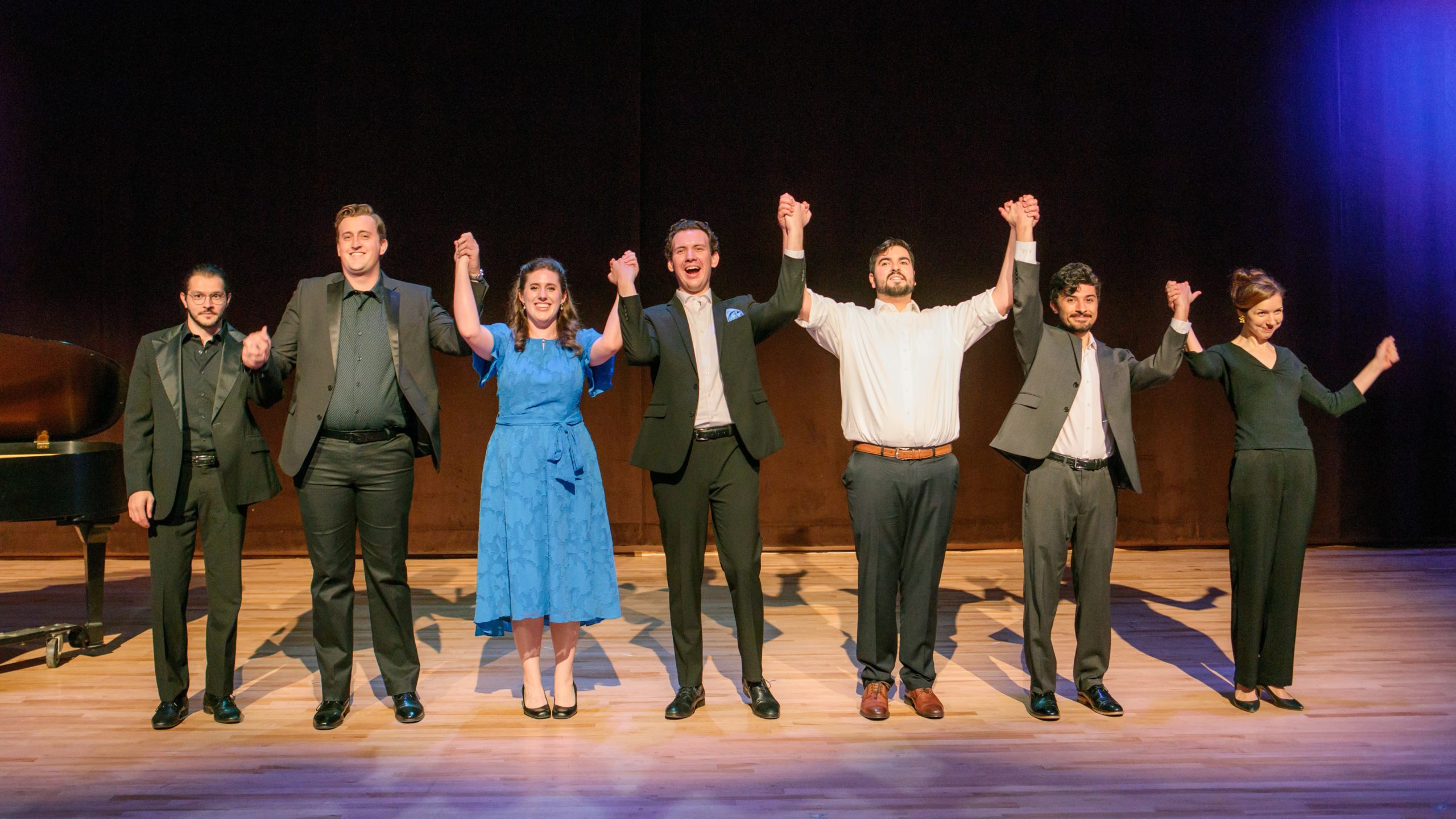
Photo: Opera Colorado/Matthew Staver
Each spring Cherity Koepke, our Director of Education & Community Engagement and the Director of the Artist in Residence Program, creates a performance showcasing songs by American composers. Here at Opera Colorado, our mission is to connect our Colorado community to the emotions and stories of the world through traditional and innovative opera and educational programming that is accessible to all. American Song is an important moment to renew our commitment to our mission every year. We relish this opportunity to introduce our Colorado community to modern and rarely-performed opera and art song written by American composers and to sprinkle in a few favorites as well!
Here, we open the door to this concert and share a few pieces the Opera Colorado Artists in Residence will perform this year. Learn about Cherity’s “Inspiration” and discover some fun facts about six songs from this concert!
Join us on April 3 for American Song: Inspiration at the Elaine Wolf Theatre. Tickets start at just $30>>
By: Cherity Koepke
Director’s Note—American Song: Inspired
Inspiration. It’s a funny thing. It can come from unexpected places and in unexpected ways. It can come when you’re looking for it or have no idea you need it. When I started working on this year’s American Song program eleven months ago, inspiration wasn’t something I was trying to find. I had a list of seventy-five possible repertoire pieces. But the more I tried to put a program together from what I had, the more the pieces just didn’t fit.
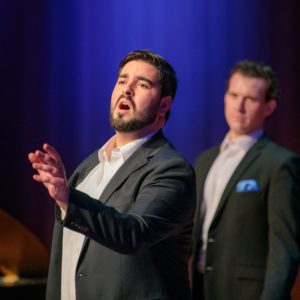
Photo: Opera Colorado/Matthew Staver
When I get creatively stuck, I sometimes find journaling helps, so that’s what I did. As I was journaling, a song popped up on my playlist one particular evening. It was a song from my childhood, one I hadn’t heard or even thought of for ages. The next morning, I woke up with the song playing in my head. Great, an earworm, I thought. As I drove home that evening and I was still humming the tune. That’s when it hit me. The song’s message is about imagination, creativity, and the spark of inspiration. I started thinking about that word: Inspiration. At that moment, the theme for this year’s program was born.
Over the next few months, I began selecting new pieces and researching what inspired them. I reached out to composers and poets, lyricists, and librettists. Many shared their personal moments of inspiration—excited to talk about not the what, but the where, the how, and the why.
Inspiration. It’s a funny thing. In trying to find my inspiration for this year’s program, I found the theme itself, or rather it found me.
Discover your own inspiration on April 3 for American Song: Inspiration at the Elaine Wolf Theatre. Tickets start at just $30>>
“Goodnight Moon”
Music by Eric Whitacre & Text by Margaret Wise Brown
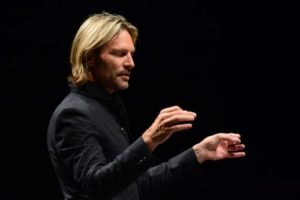
Photo: ericwhitacre.com
In the eight years since we began American Song, there has been a composer whose music I’ve wanted to showcase, but it needed to be the right theme and the right artist. This year, I finally have that opportunity. Eric Whitacre has been a force moving American music forward for years. His virtual choirs and new choral and orchestral compositions have helped make classical music more accessible to modern audiences.
I asked Eric about “Goodnight Moon” and what brought him to this piece. Eric said, “Over the first six years of his life, I must have read Goodnight Moon to my son a thousand times, maybe more. Somewhere around reading number 500, I began hearing little musical fragments as I read, and over time those fragments began to blossom into a simple, sweet lullaby. I knew it was a long shot, but I asked my manager to contact HarperCollins and see if they would allow the text to be set to music. To my surprise and delight, they agreed—the first time they had ever allowed Goodnight Moon to be used in such a way.”
“Unusual Way” from the musical Nine
Music and Lyrics by Maury Yeston
Conceived, written, and composed by Maury Yeston as a class project in the BMI Lehman Engel Musical Theatre Workshop in 1973, the musical Nine opened on Broadway in 1982. It won five Tony Awards, including Best Musical. It was inspired by Federico Fellini’s semi-autobiographical 1963 film 8½. Fellini had entitled his film 8½ in recognition of his prior body of work, which included six full-length films, two short films, and one film that he co-directed. Yeston’s title for the musical adaptation adds another half-credit to Fellini’s output. Yeston called the musical Nine, explaining that if you add music to 8½, “it’s like half a number more.”
As a teenager, Yeston was obsessed with Fellini’s films. While he wanted to write about the lead character Guido, what really opened the gateways of creativity was to hear from the extraordinary women in Guido’s life. According to Yeston, the great secret of Nine is that it asks the question, “What are women to men?”
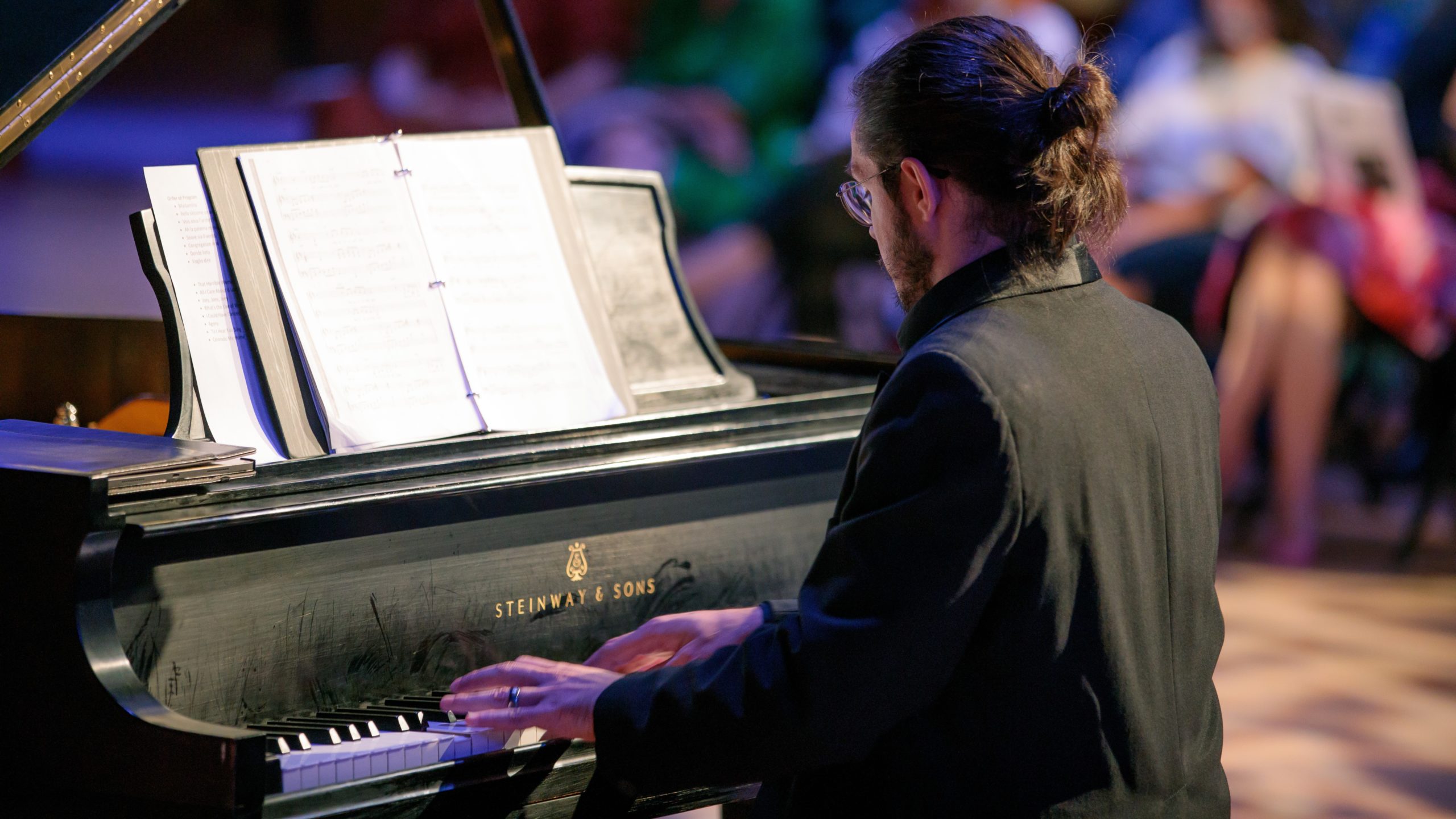
Photo: Opera Colorado/Matthew Staver
“Recuerdo” from The Jeff Blumenkrantz Songbook
Music by Jeff Blumenkrantz, poem by Edna St. Vincent Millay
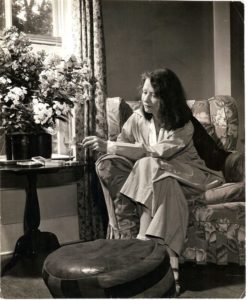
In 1923, American poet and playwright Edna St. Vincent Millay became the first woman to win the Pulitzer Prize for her works, The Ballad of the Harp-Weaver, A Few Figs from Thistles, and Eight Sonnets. Among the poems in A Few Figs from Thistles is “Recuerdo.”
The poem takes on new life, and music gives voice to memory in the gifted, subtle hands of American composer Jeff Blumenkrantz.
“Take Me To The World” from the musical Evening Primrose
Music and Lyrics by Stephen Sondheim
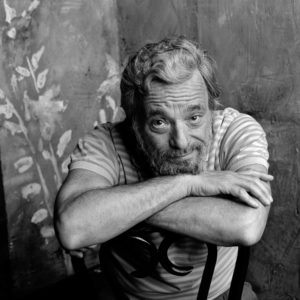
Photo: The New York Times
Sondheim’s music has the unique ability to occupy multiple art forms. Some consider Sweeney Todd to be musical theatre, to others, it’s opera. The same can be said of A Little Night Music. These works thrive in both worlds. Regardless of what genre you assign to his music, its impact cannot be denied.
The piece “Take Me To The World,” comes from one of Sondheim’s lesser-known works, the made-for-film musical Evening Primrose. Based on a short story by John Collier, the story focuses on a poet who takes refuge from the world by hiding out in a department store after closing. The one-hour program was taped at Manhattan’s now-defunct Stern Brothers department store. The original telecast was in color, but the original master tape has never been found. Actor Anthony Hopkins led the cast.
“The Transport From Holland” from the opera, Two Remain
Music by Jake Heggie and Libretto by Gene Scheer

Photo: Ellen Appel
Two Remain is an opera based, in part, on the true stories of two Holocaust survivors: the Polish dissident Krystyna Zywulska (1914-1993) and the gay German Jew, Gad Beck (1923-2012). It was commissioned by Music of Remembrance. During the creation of the libretto and score, Heggie and Scheer used original source material, including documents and journals from the US Holocaust Museum and interviews—including several from the film Paragraph 175.
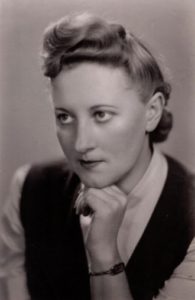
Written just after the author’s escape and published in 1946, I Survived Auschwitz was the first-ever book to emerge about the camp and represents one of the earliest and most significant contributions to Polish literature on the Holocaust. Less known, but no less important, are Zywulska’s songs and poetry created during her imprisonment. These remarkable works offer valuable insight into prisoners’ daily experiences and cultural activities in the Nazi camps. The exact number of Zywulska’s camp poems and songs remains uncertain, but at least eight complete texts survive. Those closest to Zywulska remember her as a woman who loved to laugh, sing, and joke. In the last decade of her life, without training and with impressive success, she took up painting, fulfilling a life-long desire.
“Bea’s Mirror Aria” from the opera Three Decembers
Music by Jake Heggie and Libretto by Gene Scheer
Based on Terrence McNally’s original script, Some Christmas Letters, the opera Three Decembers centers on a famous stage actress Madeline Mitchell and her two adult children: Beatrice and Charlie. The three parts of the opera are set in the month of December in the years 1986, 1996, and 2006. Heggie’s score is the emotional undercurrent to the story and is deceptively direct. Each scene is musically crafted to move the audience from one period to the next—highlighting the characters’ journeys. It’s a story about familial love in a family that doesn’t quite know how to love each other. “Bea’s Mirror Aria” occurs in middle of the opera, during a particularly difficult time. Bea is waiting for her mother Madeline to arrive, having agreed to attend a party with her. True to form, Madeline is late.
Don’t miss these six amazing American songs and many more! Join us April 3 for American Song: Inspiration at the Elaine Wolf Theatre. Tickets start at just $30>>


